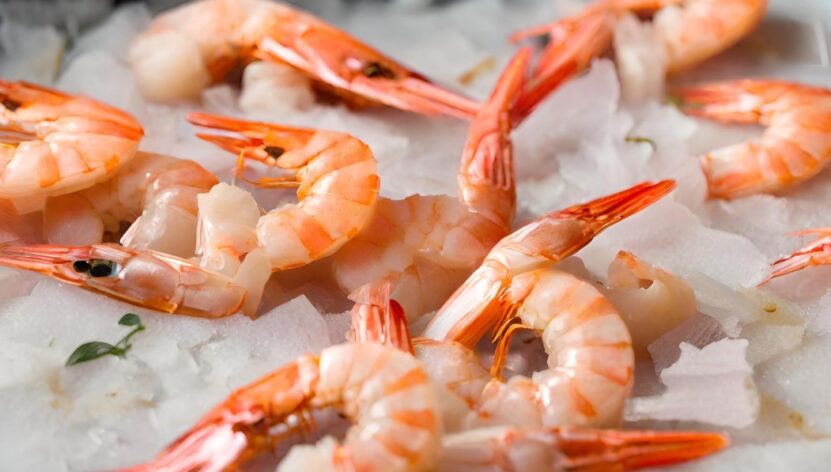In the UK, where I reside, prawns are not just a seafood choice; they are a culinary staple, constituting a staggering 60-75% of all seafood consumed. This immense popularity of prawns often leads to intriguing discussions in my circle, especially regarding their storage.
The most frequent question I encounter, and one that I’ve extensively researched and experimented with, is the feasibility of freezing both fresh (raw) and cooked prawns. In this article, I aim to share my findings and experiences on effective freezing methods that not only ensure the safety of these delightful crustaceans but also preserve their exquisite taste.
Freezing prawns, I’ve learned, is not merely a storage option; it is an art that extends their shelf life while maintaining their quality. In my kitchen, freezing has become a quintessential method for managing prawn storage, providing the convenience of having this beloved seafood at hand for future culinary exploits.
However, what I’ve realized is of paramount importance in this process is the adherence to food hygiene rules.
Over the years, my experience has taught me that strict hygiene practices are the cornerstone of preventing food poisoning, a risk that lurks around improperly handled seafood. So, let me take you through the journey of safely and effectively freezing prawns, a journey that has become a part of my culinary routine and a shared practice among many seafood enthusiasts in the UK.
Key Food Hygiene Rules:
- Proper Storage: Prawns should be stored at temperatures below -18°C.
- Clean Handling: Clean hands and surfaces are essential to avoid contamination.
- Prevent Cross-Contamination: Keep prawns separate from other food items.
Freezing Fresh (Raw)
When it comes to freezing fresh prawns, it’s vital to follow certain steps:
Preparing for Freezing:
- Cleaning: Rinse under cold water to remove any debris.
- Drying: Pat them dry to eliminate excess moisture.
- Peeling: Decide whether to peel or not. While both methods are safe, peeling saves time during future preparations.
How to Store:
| Aspect | Guidelines |
|---|---|
| Container | Use airtight containers or bags. |
| Labeling | Mark with purchase and freezing dates. |
Freezing Cooked
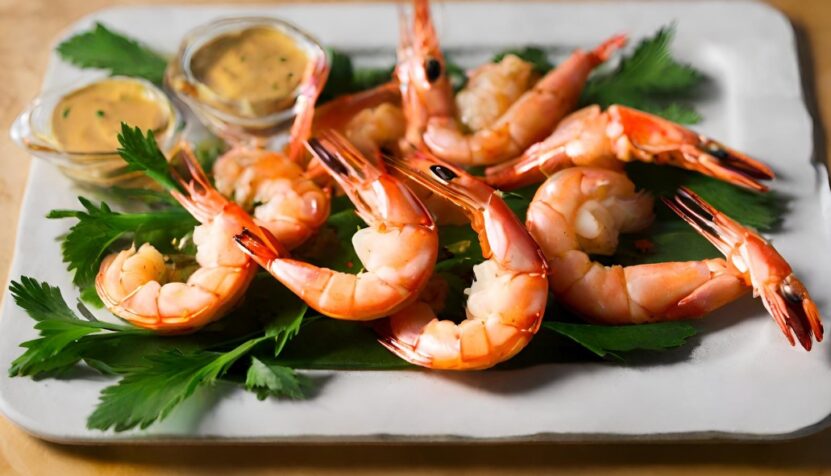
Freezing cooked prawns requires a slightly different approach.
Steps:
- Cooling: Ensure prawns are completely cooled to prevent moisture build-up.
- Storage: Arrange in a single layer to avoid clumping.
Labeling and Storage Details:
Cooked should be stored in an airtight container or bag, labeled with cooking and freezing dates.
Special Considerations
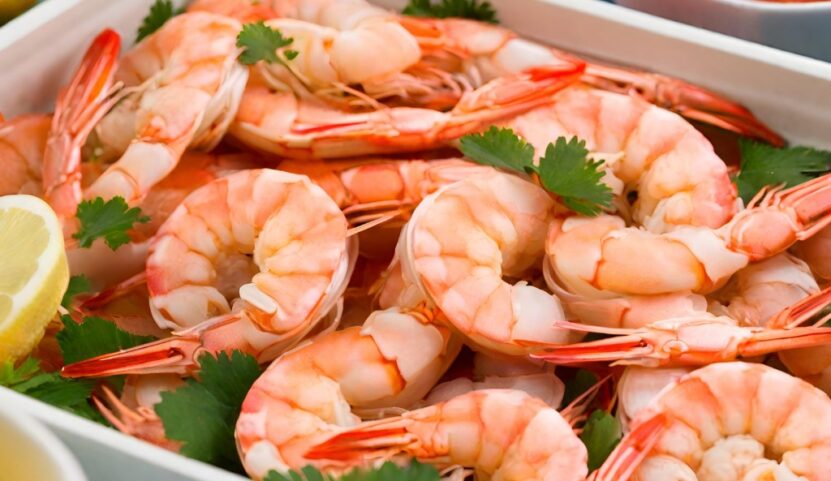
Freezing Smoked Prawns:
Smoked can also be frozen, following the same guidelines for packaging and labeling.
Shelf Life in Freezer:
Prawns can be safely stored in the freezer for 6-8 months if kept at the correct temperature.
Refreezing:
Refreezing is possible and safe if done correctly, though the quality might slightly diminish. It is also safe to refreeze prawns that have thawed in the refrigerator.
Importance of Food Safety Training
For those regularly handling food, especially seafood like prawns, food safety training is recommended. This training emphasizes:
- Proper freezing techniques.
- Understanding the risks associated with improper handling.
- Ensuring the highest quality and safety standards are met.
Cooking Methods
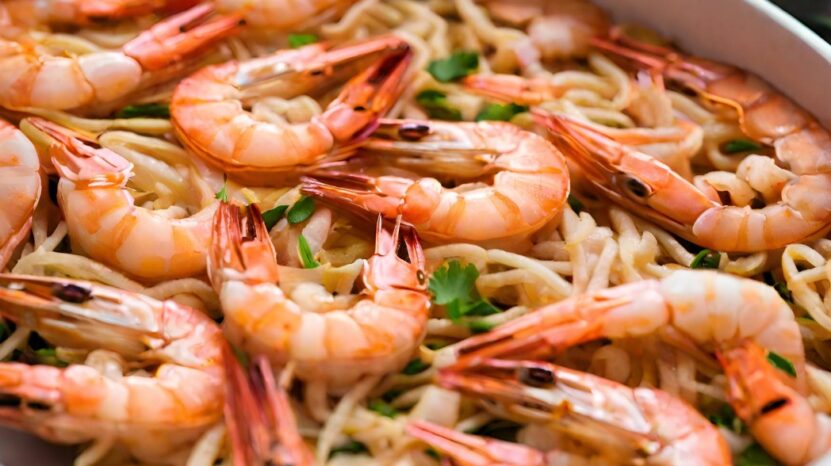
Once frozen, it can be used in a variety of cooking methods. Here are some popular options:
- Boiling: Ideal for peeled prawns.
- Sautéing: Great for a quick, flavorful dish.
- Grilling: Perfect for a smoky flavor.
Thawing
Proper thawing is crucial for maintaining the quality of prawns. There are two recommended methods:
- Refrigerator Thawing: Safest method, though it takes longer.
- Cold Water Thawing: Faster, but requires constant attention to ensure prawns remain cold.
Using in Recipes
Frozen are versatile and can be used in various recipes. They are ideal for:
- Stir-fries: Quick and easy.
- Curries: Absorbs flavors well.
- Salads: Adds a protein-rich element.
Nutritional Benefits
| Nutrient | Value per 100g | Health Benefits |
|---|---|---|
| Calories | Approx. 99 | Low in calories, ideal for weight management |
| Protein | 24g | Supports muscle growth and repair |
| Fat | 0.3g | Low in fat, heart-healthy choice |
| Omega-3 Fatty Acids | Small amounts | Supports heart and brain health |
| Cholesterol | 189mg | Moderate intake is key for heart health |
| Sodium | 805mg | Watch intake for blood pressure management |
| Vitamins | B12, E | Essential for nerve health and immune system |
| Minerals | Selenium, Zinc | Antioxidant properties, supports immune function |
Health Considerations
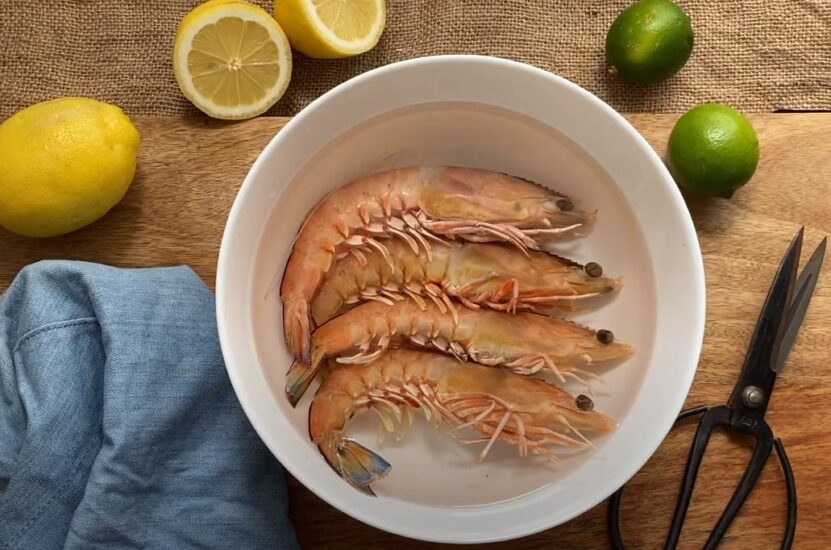
Allergies and Dietary Restrictions
Like other shellfish, can cause allergic reactions in some individuals. It’s essential to be aware of:
- Shellfish allergies.
- Dietary preferences, as prawns, are not suitable for vegetarian or vegan diets.
Balancing Consumption
While prawns are nutritious, balance is key. Consider:
- Moderating intake due to cholesterol content.
- Balancing prawn dishes with vegetables and grains for a well-rounded diet.
FAQs
Can You Freeze Prawns More Than Once?
Technically, yes. However, each freeze-thaw cycle may diminish their quality.
How Long Can You Keep in the Freezer?
Properly stored, prawns can last 6-8 months in the freezer.
Do Frozen Lose Their Flavor?
If properly stored and handled, frozen prawns maintain most of their flavor and texture.
Is It Better to Freeze Prawns Raw or Cooked?
Both methods are effective. However, freezing raw prawns preserves their texture better.
Additional FAQs on Prawns
Can theyBe Eaten Daily?
While prawns are nutritious, it’s advisable to consume them in moderation. Daily consumption might lead to excessive intake of certain nutrients like cholesterol. A varied diet is always recommended.
Are They Safe for Pregnant Women?
Pregnant women can safely eat prawns if they are thoroughly cooked. However, it’s important to limit seafood intake due to potential mercury content. Always consult with a healthcare provider for personalized advice.
How Can You Tell if Frozen Prawns Have Gone Bad?
Bad prawns often have a noticeable change in color, smell, and texture. If they emit an ammonia-like or sour odor, or if they appear slimy or discolored, they should not be consumed.
What Is the Difference Between Prawns and Shrimp?
While prawns and shrimp are similar, they differ slightly in size, taste, and anatomy. Prawns are typically larger with a sweeter taste, and they have different gill structures compared to shrimp.
Can they Be Cooked Straight from Frozen?
Yes, prawns can be cooked from frozen, and this method is often convenient and safe. However, cooking time may be slightly longer compared to thawed prawns. Ensure they are cooked thoroughly before consumption.
Conclusion
Freezing prawns, whether fresh or cooked, offers a convenient and safe way to store this popular seafood. By adhering to proper hygiene practices and storage techniques, you can enjoy prawns in various delicious dishes throughout the year. With the flexibility and safety that freezing offers, prawns continue to be a versatile and nutritious choice in the UK and beyond.
